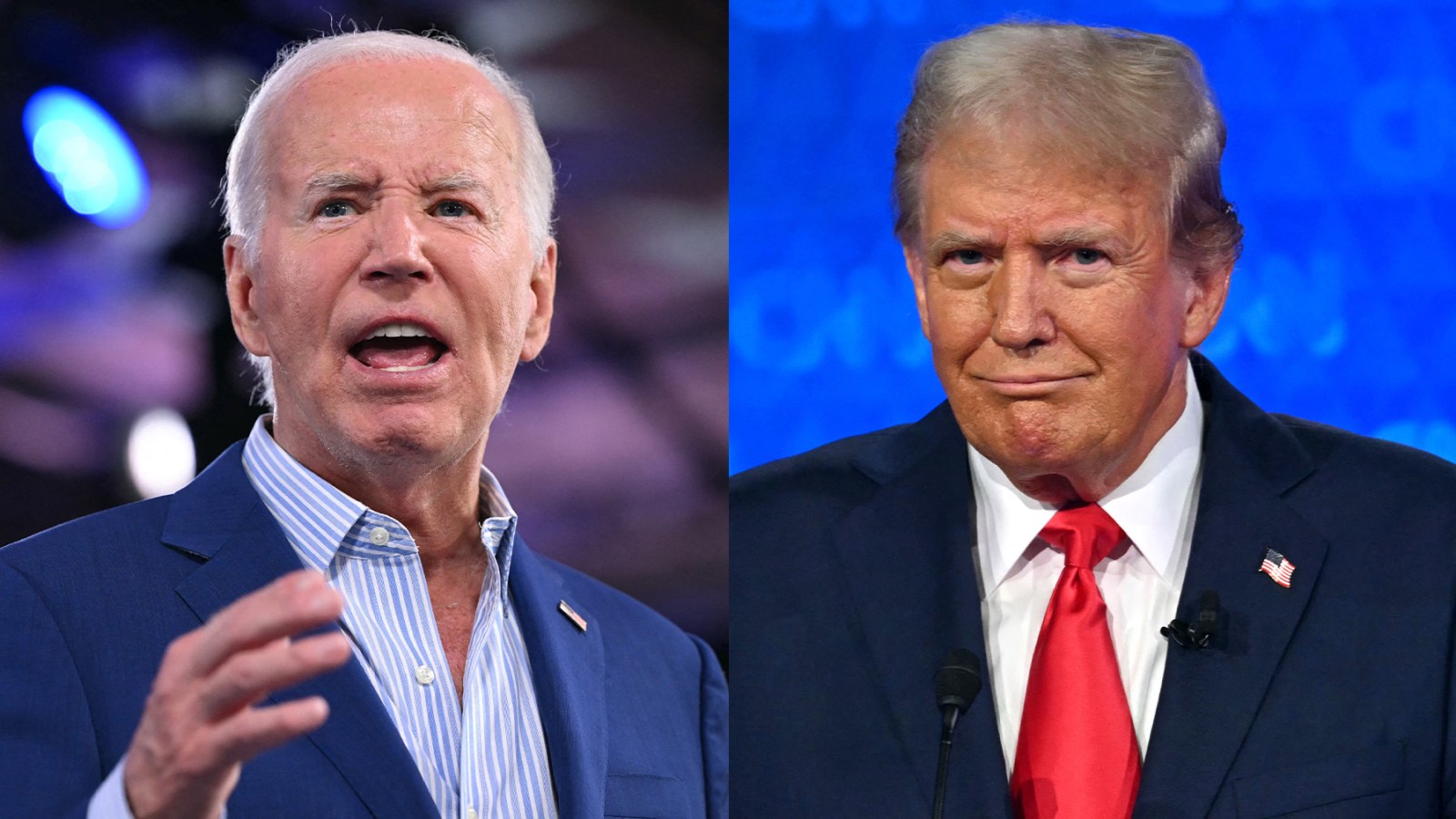On Monday, the Supreme Court ruled that American presidents have “absolute immunity” from prosecution for any “official acts” they take while in office. For President Joe Biden, this should be great news. Suddenly a host of previously unthinkable options have opened up to him: He could dispatch Seal Team 6 to Mar-A-Lago with orders to neutralize the “primary threat to freedom and democracy” in the United States. He could issue an edict that all digital or physical evidence of his debate performance last week be destroyed. Or he could just use this chilling partisan decision, the latest 6-3 ruling in a term that was characterized by a staggering number of them, as an opportunity to finally embrace the movement to reform the Supreme Court.
But Biden is not planning to do any of that. Shortly after the Supreme Court delivered its decision in Trump v. The United States, the Biden campaign held a press call with surrogates, including Harry Dunn, a Capitol police officer who was on duty the day Trump supporters stormed the building on Jan. 6; Reps. Dan Goldman (D-N.Y.) and Jasmine Crockett (D-Texas); and deputy campaign manager Quentin Fulks.
Their message was simple: It’s terrifying to contemplate what Donald Trump might do with these powers if he’s reelected.
“We have to do everything in our power to stop him,” Fulks said.
Everything, that is, except take material action to rein in the increasingly lawless and openly right-wing Supreme Court.



I don’t think you’re quite getting the “he can kill anyone who would oppose him” issue.
And literally that he has absolute immunity for acts in his constitutional powers, which including telling the military to kill people. At best the order would be refused, but that’s still not an illegal act. You don’t need to trust me, you can just read the dissenting Supreme Court justices. The “Seal Team 6” hypothetical was never addressed by the majority, because it’s a pretty direct consequence of the ruling, just something they hope wouldn’t happen or wouldn’t work.
The president can’t kill anyone who opposes him. The president is subject to the laws just like anyone else. Breaking the law is not part of his official duty. Assassinating someone the president doesn’t like is against the law.
Assassinating an enemy of the United States is a different story. The president cannot claim a citizen of the United States with no criminal activity or record against the United States is an enemy. Furthermore, the military cannot use force on citizens of the United States. The FBI can, and the president doesn’t control the FBI the judicial branch does.
Aren’t checks and balances fun?!
LOL, this is all just fantasy law, and the stuff that’s real is stripped by this ruling. The president can use powers designated to them in the constitution with absolute immunity. Regular law can’t change what those powers are, only constitutional amendments. They used to make using them in certain ways illegal, but that’s exactly what this ruling gives immunity against. All the guys doing the order, they could still be liable for doing illegal actions, but the president is immune, and they may not actually have any reason to think the president has not determined that the correct circumstances exist to make it legal. And if they agreed with the president he could just pardon them so no one was liable.
Also, I have no idea why you think the FBI is a judicial organization. It’s in the executive. It’s normally, by custom, treated as semi-independent, but that’s a custom, not a law, and the only non-constitutional act the ruling explicitly said is official is the president telling the justice department to do things. Again, the people doing the things may have to worry about the law, but the president ordering them does not and can pardon them if he wants to.